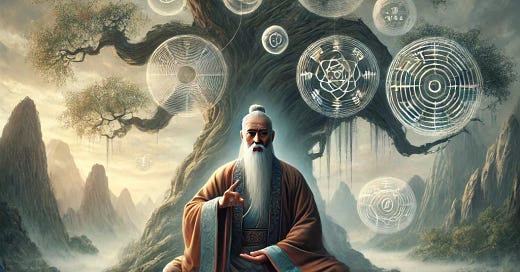Zhuang Zhou, a profound Chinese philosopher from the 4th century BCE, remains a pivotal figure in Daoist thought. His work, "Zhuangzi," explores the nature of reality, knowledge, and human emotions, providing timeless wisdom that challenges conventional understanding. In this imagined interview, Zhuang Zhou shares insights from his text, offering a deeper understanding of his philosophy.
Interviewer: Master Zhuang, your thoughts on knowledge and speech are both profound and complex. Could you elaborate on the distinction you make between great and small knowledge, as well as between great and small speech?
Zhuang Zhou: Certainly. Great knowledge is vast and all-encompassing, while small knowledge is limited and narrow. In the same way, great speech is precise and complete, expressing truth in its entirety. On the other hand, small speech is often just idle chatter, lacking substance and depth. It’s like the difference between looking at the whole sky and merely focusing on a single cloud.
Interviewer: You also speak of the human experience in terms of emotions and interactions. How do these experiences shape our understanding of the world?
Zhuang Zhou: When we sleep, our souls connect with the external world, but when we wake, our bodies take control, leading to daily activities and interactions with others. This constant mental struggle brings about hesitations, difficulties, and fears—both small and great. Our thoughts become like arrows, aimed at defining right and wrong, or like contracts, where people stubbornly hold onto their views. But over time, this rigidity weakens the mind, much like the decay of autumn leaves or water that cannot be retrieved once spilled.
Interviewer: You describe the mind as becoming like an old, dry moat. What is the significance of this metaphor?
Zhuang Zhou: It symbolizes a mind that has lost its vitality, becoming inflexible and close to death. Emotions like joy, anger, and sadness arise spontaneously, like mushrooms in the night, without us knowing their origin. The mind, when overly constrained, loses its ability to rejuvenate and adapt.
Interviewer: Finally, you urge us to stop. What should we stop, and why?
Zhuang Zhou: We should stop the endless pursuit of understanding the origins of these emotions and thoughts. They arise naturally, beyond our control. Attempting to unravel their mystery only leads to confusion. Sometimes, it's wise to simply let things be.





